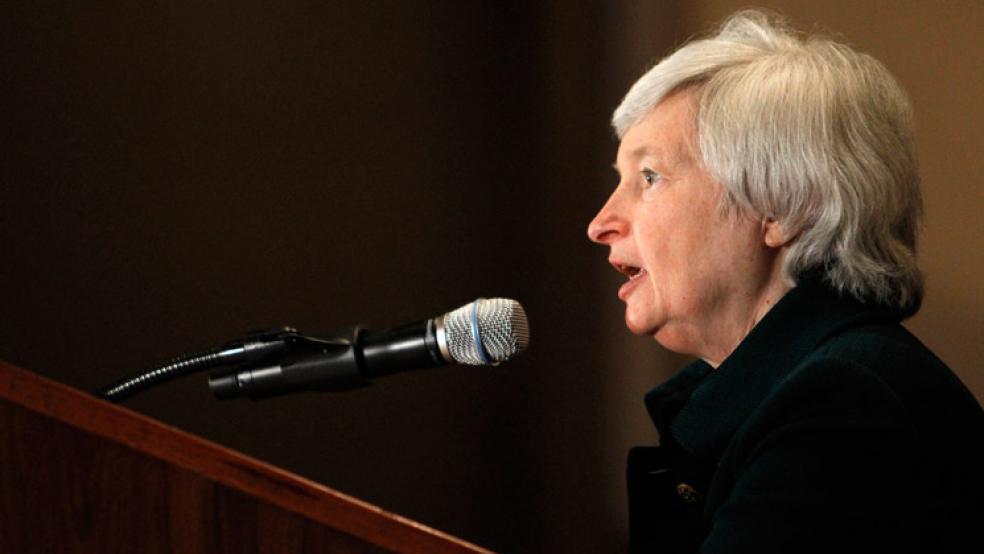The Senate Banking Committee on Thursday approved Janet Yellen's nomination to become the first woman to lead the Federal Reserve, sending it to the full Senate for a final vote.
If she is confirmed, as is widely expected, the current No. 2 at the central bank will replace its chairman, Ben Bernanke, when his term expires on January 31, making her the most powerful woman in world finance.
The vote was 14 in favor and 8 against. Three Republicans voted in favor of her nomination and one Democrat voted against.
Related: Republicans Threaten to Use Yellen As a Political Football
Nominated by President Barack Obama, Yellen is viewed as a monetary policy dove who puts more weight on driving down high unemployment than on the risk this will ignite future inflation.
She will preside over a central bank that has taken dramatic and unconventional steps to spur U.S. growth and hiring, measures that have stirred fierce complaints among critics fearful of future inflation and the potential for asset price bubbles.
The Fed has held benchmark U.S. interest rates near zero since late 2008 and has quadrupled the size of its balance sheet to $3.9 trillion through three massive bond purchase campaigns aimed at lowering the cost of long-term borrowing.
This has made the Fed a target for Republican lawmakers worried that these ultra-easy policies have enabled big spending by the Obama administration. "The long-term costs of these policies are unclear and frankly worrisome," Republican Senator Michael Crapo told the committee before voting 'no.'
Related: Janet Yellen: Brainy, Brave and Brooklyn Strong
Despite those concerns, she is expected to handily win confirmation when the full Senate considers her nomination, likely in December. Democrats control 55 of the 100 votes in the Senate, which means she would need the backing of only a handful of Republicans to secure the 60 votes that would be needed to clear any procedural hurdles that might be thrown in her way.
She looks well on the way to reaching that threshold.
Yellen received support from three Republicans on the banking committee: Bob Corker of Tennessee, Tom Coburn of Oklahoma and Mark Kirk of Illinois. In addition, Republican Senators Susan Collins of Maine and Lindsey Graham of South Carolina have also indicated they are inclined to back her in the full Senate.
The Democrat who voted against her in committee was Joe Manchin of West Virginia.




